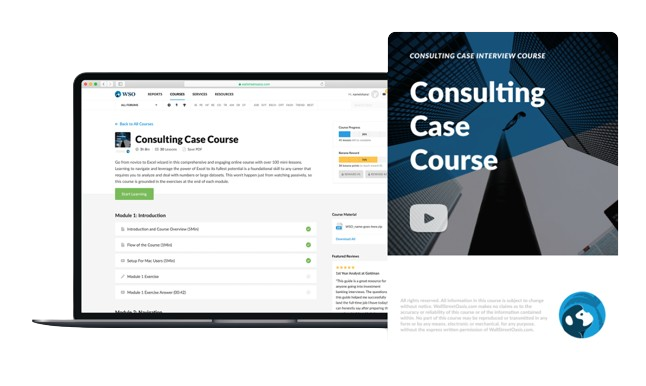Externship Vs Internship
An internship is a program with a defined duration of several months during which a student or recent graduate partners with an organization. Externships are typically shorter in length; these opportunities center on shadowing experts.
What Is The Difference Between An Internship And An Externship?
Internships and externships are two opportunities that provide a real-world glimpse into different professions. They offer invaluable insights that can significantly impact your career decisions. As windows to the professional world, they provide distinct views that contribute to career development.
An internship is a program with a defined duration of several months during which a student or recent graduate partners with an organization.
The primary focus of the internship program is to gain more practical knowledge and a deeper understanding of the field. This practical experience frequently involves hands-on participation in day-to-day activities.
On the other hand, externships are typically shorter in length; these opportunities center on shadowing experts.
Externships allow individuals to observe the daily tasks of experts, giving them a better understanding of their jobs. This program allows for indirect comprehension of a profession without full participation.
Internships and externships hold immense value in pursuing a successful career. These experiences aid individuals in navigating their professional paths, serve various purposes, and offer valuable insights.
Key Takeaways
- An internship is a structured program typically offered by employers to students or recent graduates.
- An externship, also known as an extern or shadowing experience, is typically a shorter and less formal arrangement compared to an internship.
- During the internship, interns can apply theoretical knowledge gained in the classroom to real-world scenarios, develop professional skills, and explore career paths.
- Externships help you gain a deeper understanding of a profession by applying theoretical knowledge from academics, evaluating your suitability for a particular field, establishing professional connections, and adding depth to your resume.
What is an Externship?
An externship is a short-term experience that allows you to shadow professionals in your field. The primary purpose of an externship is to gain insight into the daily responsibilities and activities of professionals in a specific industry.
Externships function less formally compared to internships and may not always provide compensation. Some training programs, however, such as those in healthcare, may offer compensation.
The program could last one day or up to eight weeks. During a summer or holiday break, a student might do an externship or multiple externships.
Do your research at your school's career center and on company websites like externship.com to find out if there are any available opportunities and when. You can secure an externship by asking to shadow someone, connecting with existing employees, or finding other industry experts by utilizing your network.
Including an externship experience on your resume is recommended. It demonstrates your interest in and exposure to a particular field, providing additional insights into your qualifications and commitment to your chosen career path.
Listing externships on a resume indicates that you have gained in-depth knowledge and understanding of a specific profession. It highlights your proactive approach to exploring career options and acquiring valuable industry insights.
What is an internship?
An internship is a temporary position with an organization that allows you to gain hands-on experience and professionally apply your knowledge and skills. Internships can be paid or unpaid and are typically completed during summer breaks or over a semester.
The internet is filled with valuable internship statistics that shed light on trends and advantages. Let's look below for some statistics:
- Completing an internship increases your chances of finding work after graduation by 85%.
- Internships result in 16% more employment offers for students than for students who do not.
- Approximately 31% of interns begin their training after graduating from college.
- An intern's average age is 17 years old.
- More than 60% of the programs compensate their interns.
There are multiple avenues to find internships, such as utilizing your college or university's career services department, attending networking events, and searching for opportunities online on platforms like Indeed.
Tailoring your application materials, such as your resume and cover letter, to highlight your qualifications and interest in the specific internship is essential.
It is highly recommended that you include internship experience on your resume. It demonstrates your practical expertise and shows potential employers that you have relevant industry exposure.
Externship vs. Internship
The following table presents a side-by-side comparison of Internships and Externships, highlighting critical aspects of these valuable opportunities.
This table offers a concise overview of both options, from the activities involved and their respective benefits to considerations of who can pursue them and their flexibility. It helps individuals make informed decisions about their career paths.
| Aspect | Internship | Externship |
|---|---|---|
| Activities Included |
|
|
| Benefits |
|
|
| Who Can Pursue | Students and graduates from various educational levels | Fresh grads, those looking into different disciplines, or people thinking about changing careers |
| Flexibility | May have particular deadlines, deliverables, and time constraints | Less formal requirements and more latitude concerning time commitments, schedules, and commitments |
| Expectations | An essential component of career development that is frequently encouraged or mandated by educational institutions | Complementary education outside of the classroom or formal education programs. |
| Advantages |
|
|
| Disadvantages |
|
|
Should You Choose an Internship or an Externship?
Some reasons to choose an internship over an externship include:
- Payment opportunities: Internships often offer payment, providing financial support during the learning experience, while externships are seldom paid.
- Hands-on experience: If you’re entering an industry where specific skills are needed, an internship allows you to practice and hone those skills.
- Workplace immersion: As an intern, you are an actual part of the team and experience what it’s like to work for a company.
Some reasons to choose an externship over an internship include:
- Expanding your network: An externship can help you make new connections with less effort than an internship requires.
- Entering a new field: This is a chance to explore a new area and decide if you’d like to join it.
- Mentorship: In an externship, you can and will meet many professionals who may serve as mentors as you enter the workforce.
Conclusion
Internships and externships are both in-demand experiences that offer insights into different professions. While they have distinct characteristics and serve other purposes, both can provide valuable industry exposure and help you make informed decisions about your career path.
When choosing between an externship and an internship, consider factors like
- Career goals
- Industry Exposure
- Duration
- Payment
- College credit
- Networking opportunities
Research different industries and job roles to find ones that align with your skills and interests. Seeking mentorship or networking with professionals can provide valuable insights and guidance for informed career decisions.
Externships Vs. Internships FAQs
Should you apply for an externship or an internship? When deciding between these, look beyond the program title to find a perfect fit. Belden Castonguay suggests that you must try answering questions such as:
- How long can I commit?
- What will I discover?
- Who will I encounter? With whom may I establish connections?
- Do I get paid? Will this experience help my CV stand out?
Externships may not have formal evaluations or structured development programs, as they are primarily focused on observation and learning.
Externships tend to be brief and may not automatically lead to hiring, but they offer useful knowledge and networking opportunities that aid in prospective occupation preparation.
Enhancing resumes and improving job market appeal, these opportunities offer practical skill development and hands-on exposure. Externships offer possibilities for connecting with specialists within one’s field and may lead to mentoring or recommendations.
Internships can lead to potential job offers or extended employment opportunities with the host organization or industry.
You can do multiple internships or externships to gain diverse experience and build a stronger resume. However, consider balancing them with your academic commitments.
Transitioning from an externship to an internship or vice versa is possible, but it depends on the opportunities available and your circumstances.
Many educational institutions offer career services that assist students in finding both externship and internship opportunities. They may have dedicated staff or online resources to aid in the search and application processes.
Check out Wall Street Oasis for other articles and courses to help progress your career.
Free Resources
To continue learning and advancing your career, check out these additional helpful WSO resources:




or Want to Sign up with your social account?